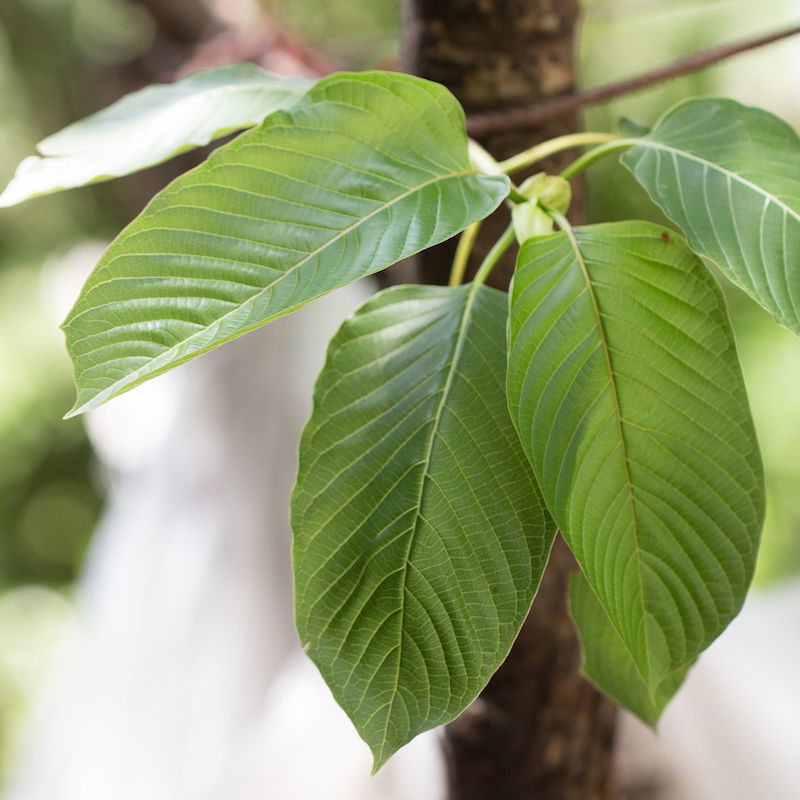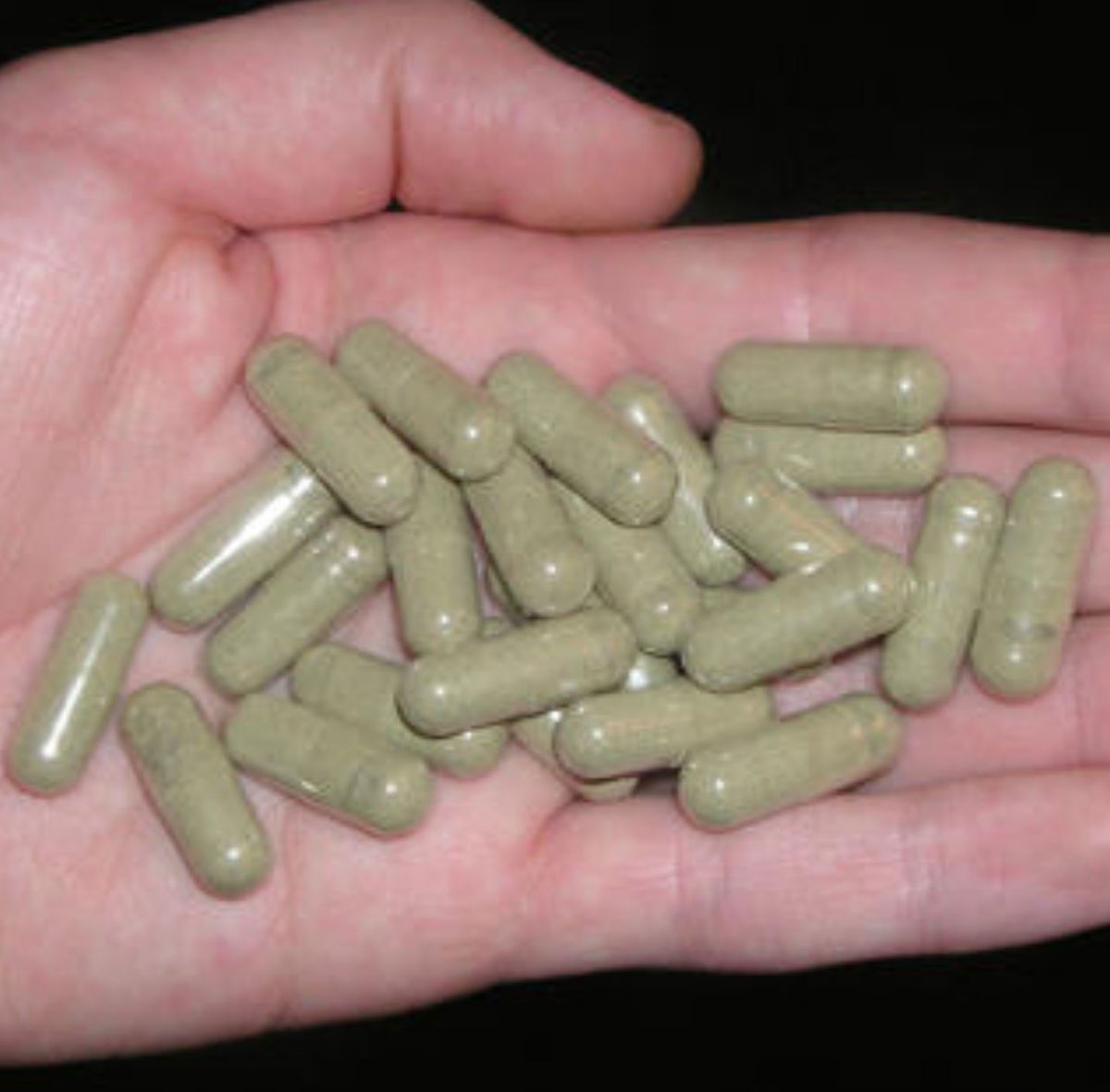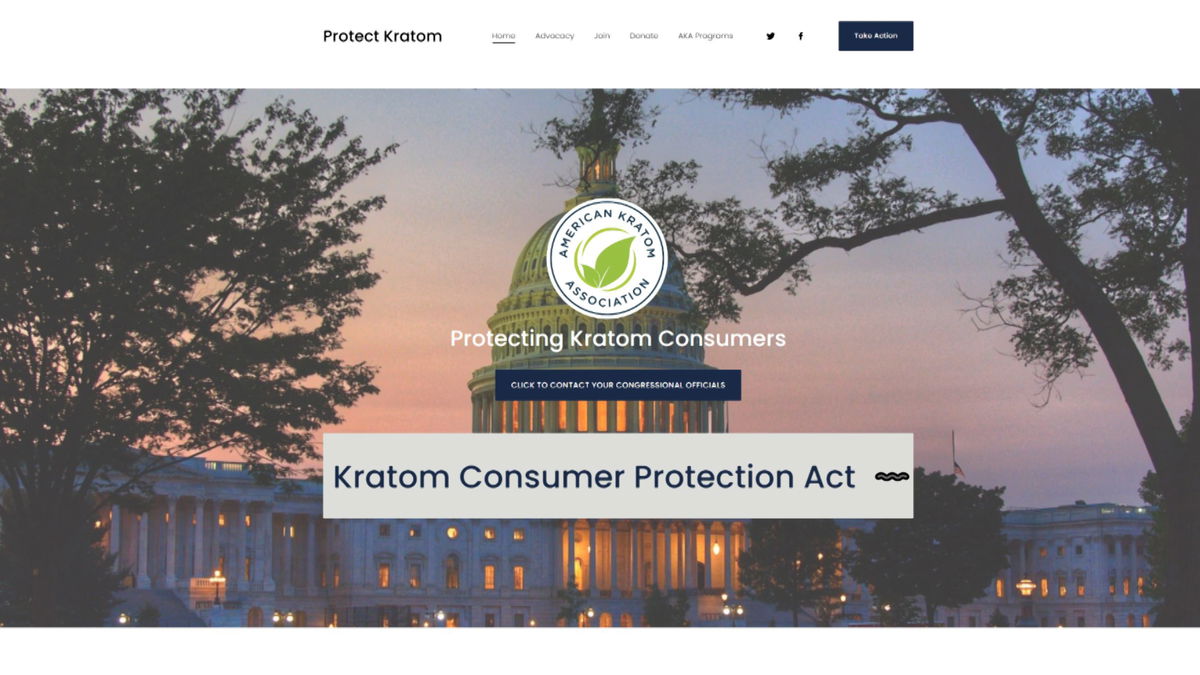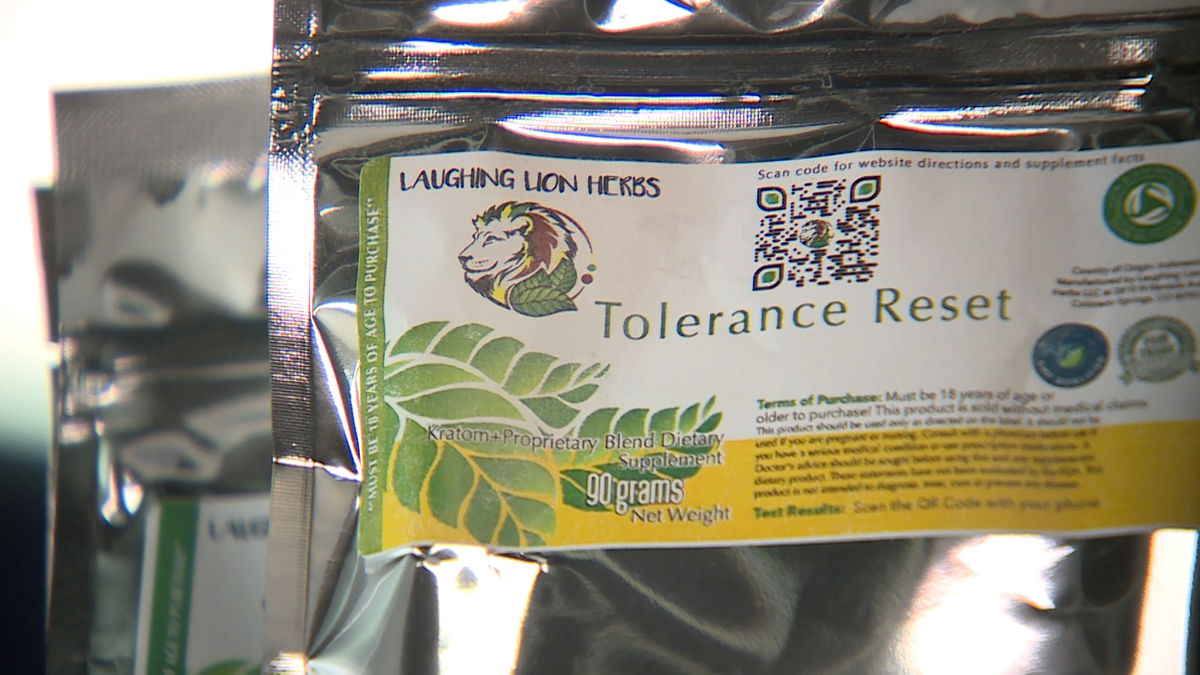Industry, users, relatives of overdose victims push for regulation of Kratom
COLORADO SPRINGS, Colo. (KRDO) - A popular herbal substance from Southeast Asia has exploded in popularity in the U.S. over the past decade, but many are questioning whether the lack of regulation so far by the FDA is leading to an abundance of tragedies, including some here in Colorado.

What is Kratom?
Kratom is derived from a tree that is primarily grown in the Southeast Asian countries of Indonesia and Thailand due to the year-round friendly climate and has been used for centuries by people who used it as a medicinal remedy and to improve overall mood or work ethic.
The active ingredient in Kratom is mytraginine.
According to the National Institute on Drug Abuse, it can produce opioid and stimulant-like effects.
It has proven effective in treating opioid addictions, as well as relieving chronic pain as well as PTSD in veterans.
It is legal to buy in nearly all cities in Colorado, and nearly all states, but the Food and Drug Administration (FDA) has yet to formally approve it for treating any type of conditions.

Losing A Son
You can learn a lot about Daniel Schwartz simply by listening to his music.
It is unique, unscripted, and at times even hypnotizing.
"He was always a character," says Larry Schwartz, who currently lives in Highlands Ranch.
Larry says despite sending Daniel to a prominent Catholic school to avoid things like drugs, Daniel developed a dangerous addiction to a variety of substances.
After a few years, however, Daniel tried to kick the habit.
He agreed to receive treatment from the Center for Dependency, Addiction, and Rehabilitation (CeDAR) at the University of Colorado Anschutz campus and later moved into a sober living house.
"The last year of his life, he really came a long way," says Larry, who was happy to see his son headed in the right direction.
Larry believes Daniel started using Kratom a few months after moving out of the sober living house and didn't hide it, because he thought it was a safe alternative to more dangerous drugs.
Sadly, on July 22, 2018, he received a phone call from Daniel's roommate, telling him Daniel had overdosed.
"He had discovered Dan in his room, on his bed, just unresponsive," recalls Larry, "They called paramedics, and they came over, and he was gone."
It was a Sunday, and Daniel was planning to have a movie night at home with his girlfriend that evening.
Daniel was 29.
An autopsy by the coroner in Arapahoe County shows Daniel died from "acute mitragynine toxicity".
Larry doesn't know if Daniel simply took too much Kratom while seeking to get high, or if he got a hold of a batch that was far more potent than Daniel believed.

Can Kratom kill you?
El Paso County Coroner Dr. Leon Kelly sees 1-2 cases a year where Kratom (mytraginine) is determined to be the cause of death.
He explained that mytraginine impacts the same opioid receptors as fentanyl, morphine, or heroin, but the potency of Kratom is far lower.
In small doses, Kelly describes it as having a similar story to caffeine, but at higher doses, it acts more like a traditional opioid, which can cause respiratory suppression, sedation, and in extreme cases death.
However, he is cautious to add that in order for it to be fatal, someone would have to consume far more than is recommended, or get a hold of a batch that is highly potent or mixed with other dangerous drugs like fentanyl.
Kelly recalled going into the homes of Kratom overdose victims and finding buckets of Kratom powder, suggesting the person was taking enormous amounts of it.
He believes the biggest danger of Kratom is actually not the plant itself, but its lack of regulation.
"This is completely unregulated, meaning they can put whatever they want in it. What you think you're buying may not be in there at all, or it may be in there at 100 to 1000 times more concentration than what you anticipate," he says.
The number of annual autopsies in El Paso County where Kratom is detected in the victim has grown, but Kelly says he is far more concerned today with illicit drugs like fentanyl and methamphetamine.

Advocating For Kratom
According to the American Kratom Association, a group representing Kratom users in the U.S., approximately 15 million people consume it today, which is 5 times the number of people using it in 2016.
Mac Haddow, Senior Fellow on Public Policy at the AKA, says about a third of those users take Kratom to replace coffee.
He acknowledges that there are sellers of Kratom that have 'adulterated' Kratom so that it gives people more of a recreational 'high', and claims the AKA has reported dozens of companies to the government who are doing that.
Haddow says the FDA is "failing the American public" because of its reluctance to perform studies or enact rules governing the production or prescribing of it.
"The FDA has got to step up and do their job," he says, "They should be regulating it, making sure manufacturers follow good manufacturing practices, and label these products appropriately."
"In its pure form, where it's not adulterated, it's a very helpful substance," he adds.
Haddow believes the FDA has unfairly demonized Kratom and leads medical examiners and coroners to make inaccurate conclusions about causes of death.
The AKA has put together several websites, including KratomAnswers.org, AmericanKratom.org, and ProtectKratom.org, that respond to some of the concerns and legislation surrounding kratom.
The material includes several scientific studies into the safety of the substance.
Six states banned Kratom between 2012-2017, according to Haddow, but since 2017, there hasn't been a single state that has banned Kratom, and the majority of those states have lifted their bans.
The AKA is also pushing stats to enact the 'Kratom Consumer Protection Act', which 11 states have adopted, including Colorado in 2022.
Beginning in July of 2024, the legislation in Colorado will require a manufacturer to certify with an independent analysis that it is pure Kratom, not adulterated with dangerous substances or synthesized.
It also requires proper labeling, and placement in stores where it's not accessible by people under 21.

Kratom In The Courts
The lack of labeling or regulation as a whole means Kratom in most states can be sold in something as simple as a Ziploc bag without any sort of warning or list of ingredients.
The lack of those rules is what led to the death of Krystal Talavera, 39, a mother of four in Florida, as well as Patrick Coyne, 39, in Washington State.
Coyne's case was the first wrongful death trial in the U.S. involving Kratom.
Both cases, brought by the MCT law firm in Florida, resulted in court verdicts that awarded the victims' families millions of dollars.
Don't buy this product, and don't buy the misinformation of the American Kratom Association and their so-called Kratom Consumer Protection Act," says Coyne family attorney Talis Abolins of MCT.
"This industry is not about protection of consumers; it is 100% about protecting their ability to sell an unsafe product that should not even be in the country."

Proactive To Protect Consumers
Even before the new legislation takes effect in Colorado, many retailers like Laughing Lion Herbs in Colorado Springs are already following the new guidelines, only selling products produced in certified labs, with labels that detail what's in it and how much to take.
"It was life-changing for me," says CEO Matthew Frank.
Frank says he was previously on 11 different prescriptions for pain due to a condition he developed as a child, and decided to try Kratom after learning about it from a friend in 2014.
"The first time I took it, we were driving up the hill, and I looked over at my wife and I'm like, 'The pain is gone'. It just kind of blew my mind. I'm like, 'I don't feel the pain.'"
He estimates that 60 percent of his customers have stories that are similar to his, while the rest is a mix of people looking for a substitute for coffee, a way to be more focused, and occasionally a way to help kick a drug habit.
Even Larry Schwartz acknowledges that Kratom might be good for some people.
"You know, it may have positive properties," he says, "It may actually help people get off opioids, but you have to know how to administer it, and to whom, before you just make it a wide open, buy-it-at-the-gas-station substance like it is now."
Five years after Daniel died, Larry says he's not angry but sad for all the things Daniel missed out on in life.
"You know, you occasionally see something that you've done with him, like a place I went with him, and you just think about it. And it's very hard."
At The Federal Level
Many lawmakers have asked the FDA to step in.
A letter sent to the agency in 2017 requested the FDA reconsider its stance on Kratom.
It was signed by 17 members of Congress, including Jared Polis before he was governor.
When asked if Polis still supports the use of Kratom, a spokesman replied, "Governor Polis supports Coloradans freedom to choose the best treatment for them, which may include Kratom. On May 26, 2022 Governor Polis signed the Regulation of Kratom Processors to determine appropriate regulation and safety measures and he looks forward to continuing to try to find a solution that protects access for consumers. The Governor has been moved by the personal stories of many people who have successfully used Kratom to get off of opioids, The Governor believes similar to that people should be aware of the risks of substances such as alcohol, raw milk, marijuana, cigarettes, kratom, but it is ultimately up to adults to make their own choices free of government interference.”
According to the FDA's website, "Until the agency scientists can evaluate the safety and effectiveness of kratom (or its components) in the treatment of any medical conditions, FDA will continue to warn the public against the use of kratom for medical treatment."
It goes on to state, "FDA is planning to conduct its own clinical study with kratom through its Controlled Substance Staff (CSS), the group at FDA that assesses whether drugs have abuse potential. This small-scale human study will provide preliminary information on the safety, pharmacokinetics (evaluation of drug levels in the body), and psychological effects of kratom. The CSS study of kratom in humans will contribute to a more thorough scientific understanding of the effects of this substance in humans.
